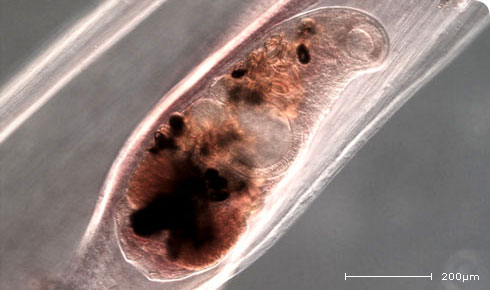Derogenes varicus
Derogenes varicus is a trematode flatworm that lives parasitically in the stomach of many species of marine fish in all cold water areas of the world. It has no common name, but it is one of the most widely spread and common marine species.
It lives in at least three different hosts during different stages of its lifecycle,
- a marine snail
- another invertebrate
- fish
During its free-swimming stage as a cercaria, the parasite uses its tail for protection, propulsion and as a way to infect its next host.
Species detail
-

Taxonomy
Find out what this parasitic worm looks like.
-

Biology
This parasite lives in at least three different hosts during its lifecycle, a marine snail, another invertebrate and finally a fish, in which the adult develops. Find out more about the complex lifecycle of Derogenes varicus.
-

Motile larvae
Derogenes varicus has a motile larva, the cercariae, with a tail. Find out how the cercariae uses its tail in ingenious ways to move from host to host.
-

Distribution
Derogenes varicus has been found in hundreds of fish species around the globe and even in squid. Find out more.
-

References
Get reference material about Derogenes varicus.
Images
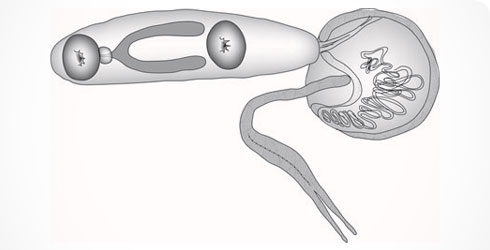
Drawing of the cercaria of Derogenes varicus
© R Bray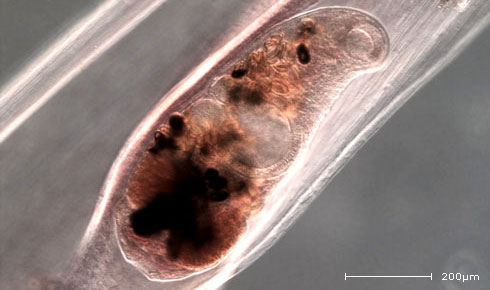
A mature Derogenes varicus in the body cavity of an arrow worm.
© R Bray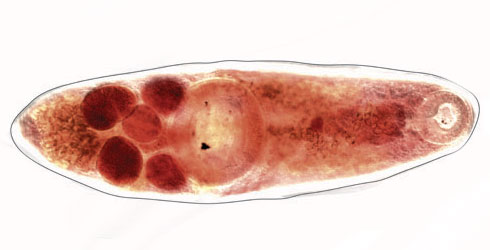
Microphotograph of a stained specimen of Derogenes varicus from the stomach of a long rough dab in the North Sea.
© R Bray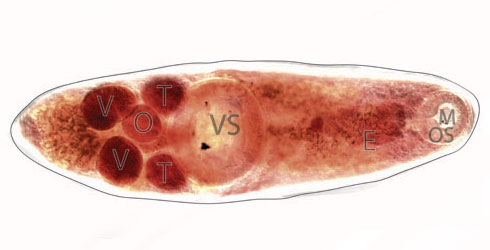
Mouth (M), oral sucker (OS), ventral sucker used for attachment (VS), testes (T), ovary (O) and yolk or vitelline glands (V). Eggs (E) are spread throughout the body.
© R Bray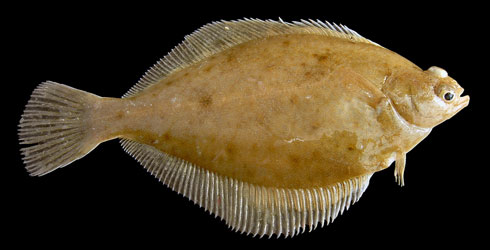
Limanda limanda the common dab one of a wide range of temperate fish species D. varicus infects.
© H HillewaertAuthor
Dr Rod Bray,
Scientific Associate, Parasitic worms, Department of Zoology.
Author's quote
'Parasites are often overlooked when we consider the diversity of life on earth, particularly if they do not cause disease in man or domestic animals. I chose to draw attention to this species as it is so common and widespread in the oceans, but has received so little attention.'
